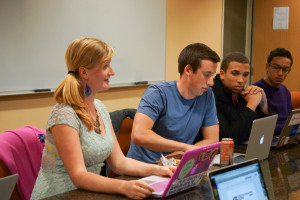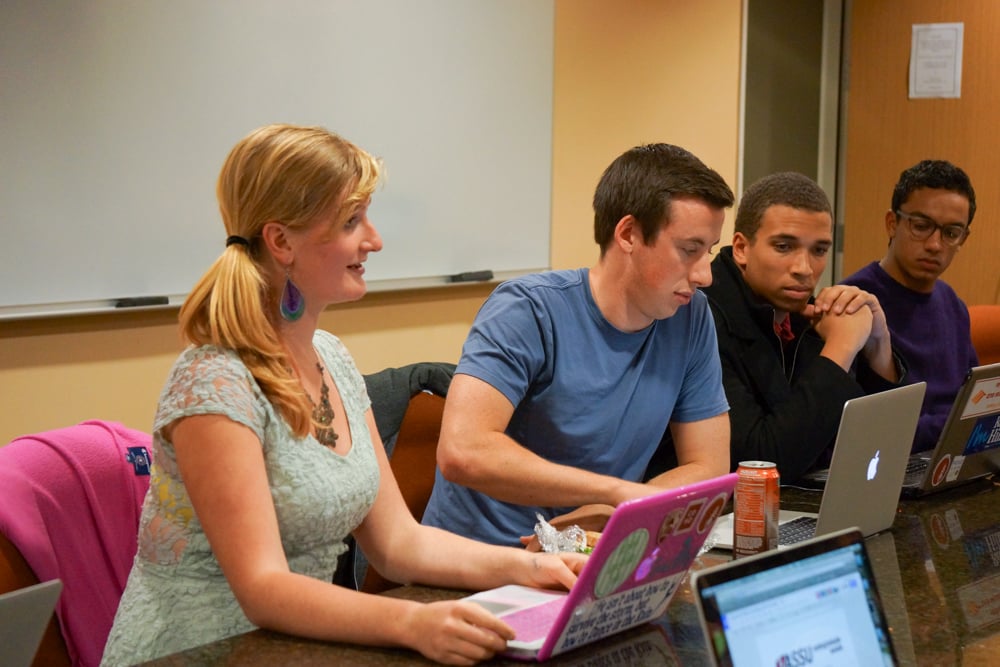
The 15th Undergraduate Senate convened Tuesday evening to discuss lingering concerns voiced by several student groups about Student Activities Fee (SAFE) Reform.
As of last night, the bill has been officially passed by both the Undergraduate Senate and the Graduate Student Council (GSC).
Senator John-Lancaster Finley ’16, who had visited the Black Student Union and the Stanford National Association for the Advancement of Colored People (NAACP) to discuss and answer questions regarding the SAFE Reform, reported that students voiced dissatisfaction with the changes in the special and general fees program and the Major, Minor and Quick grants proposed by SAFE Reform.
Some students also opposed the replacement of the Appropriations Committee with the Funding Board, stating that this would negatively impact representational democracy by reducing the number of elected Senators on the Board. Furthermore, they also expressed discontent in student groups’ inability to build up monetary reserves.
ASSU Financial Analysts Justine Moore ’16 and Olivia Moore ’16, who co-authored the SAFE bill, responded to student groups’ concerns.
“SAFE Reform originally had no elected representative,” Olivia Moore said. “After talking to community centers, we realized how important it was to have elected representatives, so we compromised and added four elected senators to the Funding Board.”
Major and Minor grants, along with Quick grants, are first reviewed by the members of the Funding Board. The Board, assuming a role similar to that of the Appropriations Committee, makes a recommendation to the Senate, which then has the final say on how the money is allocated to student groups.
Furthermore, SAFE Reform effectively freezes the build-up of reserves, which has been one of the major causes behind the increased Student Activities Fees.
“Although student groups’ reserves can’t grow, they can still apply to the Funding Board to increase their reserves,” Justine Moore said.
Senators also discussed the inaccurate understanding of current special fees program and the new SAFE Reform. Finley led the discussion about having comprehensive educational SAFE Reform meetings.
“In order for students to know about it, we need to do more than expect the students to read the emails about SAFE Reform,” Finley said.
The SAFE Reform Committee has previously done outreach programs for student organizations, including a town hall meeting at Old Union. The attendees comprised 30 to 40 financial officers and student group presidents who were informed about the SAFE Reform bill and the changes it would bring to the current system.
However, to make the bill more transparent and easier to understand for the students, the Senators have decided to personally visit student groups to explain and answer any questions people may have regarding the bill.
“I am excited to reach out to student groups that feel like they haven’t gotten enough information yet, so that we can clarify any misconception and address their concerns,” said Senate Chair Ben Holston ’15.
Contact Peter Moon at pmoon ‘at’ stanford ‘dot’ edu.
